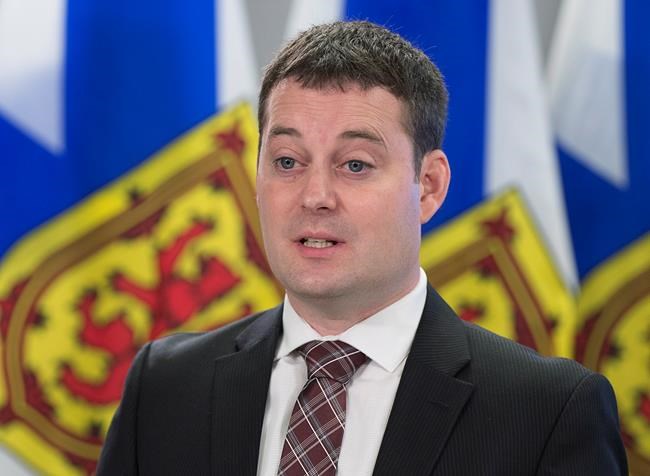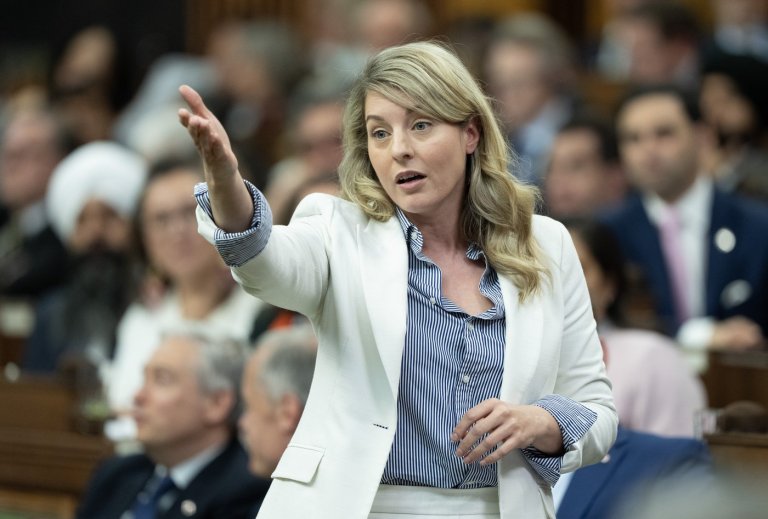
Nova Scotia surplus tightens to $12.1 million on shrinking revenues
HALIFAX – Nova Scotia’s finance minister says the provincial surplus is shrinking, and there simply isn’t room to sweeten salary offers to the province’s unhappy teachers and civil servants.
Randy Delorey released his year-end fiscal update Thursday, with a revised surplus of $12.1 million — $5 million less than the razor thin surplus estimated in last April’s budget.
He singled out the Nova Scotia Government and General Employees Union (NSGEU), which in a vote Wednesday rejected a tentative contract agreement for 7,000 civil servants that was reached over a year ago.
Delorey said the deal, which saw the government move from an initial wage offer of two per cent over five years to three per cent over four, was “fair and affordable.” He said the government intended to stick to its plan to keep the books balanced.
“We have been clear that we will stick to our plan,” he said. “It is not fair to ask our children and grandchildren to pay for unsustainable compensation packages provided for services delivered today.”
Finance officials said the projected surplus was based in part on contract agreements that both unions had already rejected. They said the surplus could be at risk depending on what is worked out at the table.
NDP Leader Gary Burrill said it’s apparent the government is willing to pay any price to avoid a deficit, something he said was “folly on their part.”
Burrill said Nova Scotia is going against the grain of current economic thinking on running deficits.
“I think the best economic thinking including the International Monetary Fund and all kinds of leading thinkers around the Western world is that this is not the way to go in the present moment,” he said.
Delorey said the government has been consistent all along in its message to the unions — teachers are currently in class under work-to-rule in their own dispute with the province — that any movement on salaries would have to be balanced with savings found in other areas of their contracts.
“We don’t have a lot of room to move in this round of negotiations, that’s just the reality that Nova Scotia faces,” he said.
NSGEU president Jason MacLean said the union is looking for wage increases that are tied to the province’s fiscal growth.
He said it is also prepared to fight to get the public service award back. Similar to the teachers’ long service award, the bonus payment made to civil servants at retirement was frozen across government in 2015 through Bill 148.
“We’re not looking for anything (salary increases), what we are looking to do is maintain and we’re looking to get back to the table,” said MacLean.
Finance officials later said that the cost of lifting the freeze on the public service award would be about $40 million a year, meaning a retroactive $80 million hit to the budget for 2015 and 2016.
In terms of the overall fiscal situation, the province said the slight reduction in the 2016-17 surplus was due to a $72.9 million decrease in revenues because of a delay in the completion of the new Halifax Convention Centre and lower tax revenues.
The shifting of the convention centre from this year’s budget to next year’s reduced revenue by $110.3 million.
Forecasted tax revenues were also down $45.5 million due to reductions in the amount of personal income tax, motive fuel tax and HST collected, while expenses were expected to rise by $45 million due to participation in the federal government’s infrastructure programs.
The province also said it would have to spend an estimated $17.5 million to respond to damage caused by October’s flooding in Cape Breton.
The update said the province’s economic outlook would continue to feel the effects of the province’s aging population and shrinking labour force. The province’s economy was hit in 2016 by slowed growth in manufacturing, international exports, and the housing market.
“It’s a house of cards,” Progressive Conservative finance critic Tim Houston said of the province’s fiscal plan.
“There are fewer people working … and less tax revenue to the province. We haven’t seen this government take one step towards growing the economy and that’s the real problem.”
Join the Conversation!
Want to share your thoughts, add context, or connect with others in your community?
You must be logged in to post a comment.


















